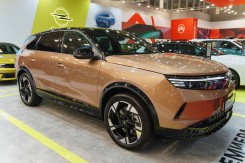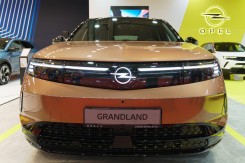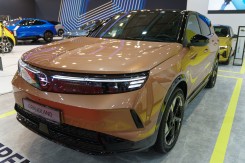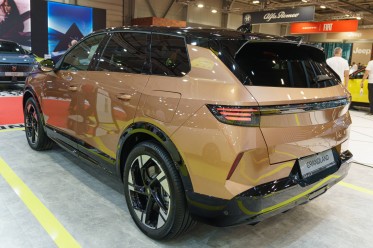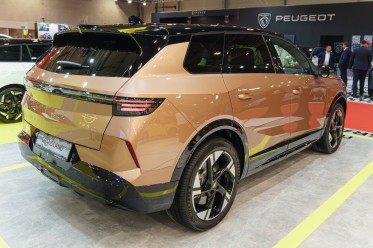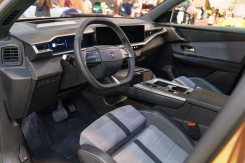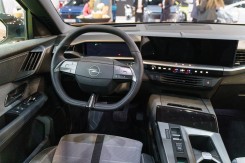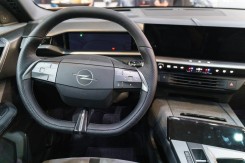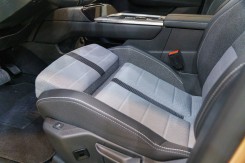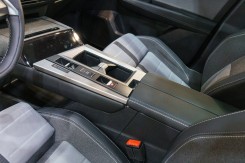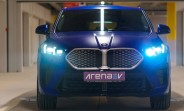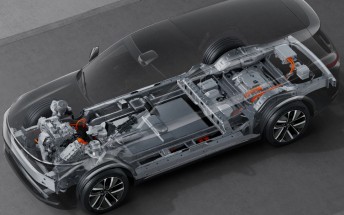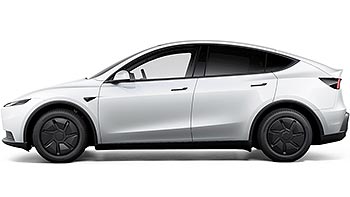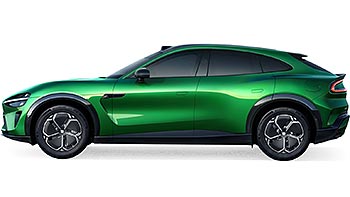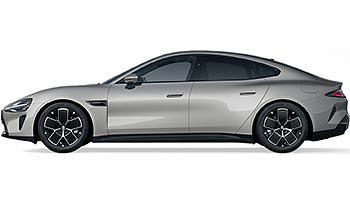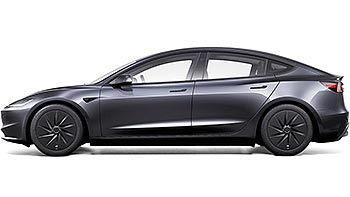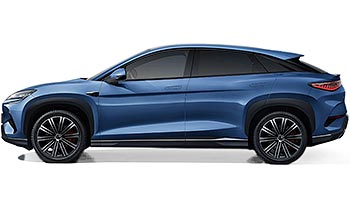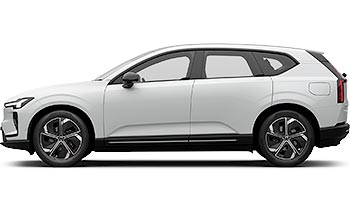2025 Opel Grandland interior, design and features review

Introduction
The Opel Grandland is the company's largest SUV yet, but in the grand scheme of things it's a mid-size offering. It's still pretty spacious inside and based on Stellantis' STLA Medium platform it should offer excellent efficiency.
The Grandland is also available as a PHEV, but that version is barely worth considering since it's not saving much upfront and will end up costing more in the long run. The EV version starts at €46,750 and is offered in three trims - Design, GS and Ultimate.
There are three battery options - 73 kWh, 82 kWh and 98 kWh, with the first two powering a front-mounted 213 hp electric motor, while the 98 kWh battery is coupled with a slightly more powerful 228 hp unit. Only the first two versions are currently available, though, with the 98 kWh coming later on.
Who is it for?
The Opel Grandland is not particularly powerful, but it will definitely get the job done. The vehicle has an average-sized trunk, but makes up with plenty of room on the back seats. Perfect for a moderate size family car.
It's also relatively affordable compared to some other options on the market.
Give me the technical stuff
Opel Grandland at a glance:
- Dimensions: 183.1 inches x 75 inches x 65.4 inches, 109.6 inches wheelbase.
- Drivetrains available: 73 kWh - FWD 157 kW (213 hp), 192 lb-ft; 82 kWh - FWD 157 kW (213 hp), 192 lb-ft; 98 kWh - FWD 167 kW (228 hp);
- Charging: 150 kW CCS (73 kWh); 160 kW CCS (82 kWh), 20-80% in 29-30 min.
- Range: 313 miles (73 kWh); 350 miles (82 kWh); 435 miles (98 kWh), WLTP
- Weight: up to 4,894 lb
- Trunk: EU: 550 l, no frunk
What's great about it?
There are plenty of good things about the Grandland. It's roomy inside, the seats are very comfortable, and Opel has delivered a functional and distraction-free cabin.
The most commonly used features are physical buttons (including AC and vents), and so are the ones on the wheel - just how we like it. However, the wheel buttons feel a bit awkward. Even the wireless charging pad is placed inside a small compartment, so you won't be too tempted to reach out by it and get disctracted behind the wheel.
What's not that good?
The infotainment may not be everyone's cup of tea as it's pretty wide but short. The UI seems a bit crammed up, even on the GS and Ultimate trims with the 16-inch display. The Design one gets you an even smaller 7-inch screen.
There's just one 213 hp motor option currently, and that doesn't sound too exciting. The still-unreleased 98 kWh version gets negligibly more powerful motor - 228 hp. An AWD version with more power would be appreciated as the vehicle weighs well over 2 tons.
Charging is also a bit slower than the competition. It's marketed to reach 80% from 20% in 30 minutes, while others cover the 10-80% range in that time or even less.
Which version to get?
If you aren't in a hurry, you might want to hold off to see the 98 kWh model's pricing. It adds quite a bit of range over the 73 and 82 kWh versions and it might well be the best value in the lineup.
On the other hand, both the 82 kWh option and the 73 kWh one provide decent enough range. The former costs around €5,000 more, which seems steep considering the WLTP range difference is only about 60 km. That's why if you are in the market right now we'd go for the 73 kWh version.
Still, the GS trim comes standard with the 82 kWh battery, including a larger infotainment screen and a cool light-up LED matrix on the front lightbar. So if you fancy a nicer cabin and you can stretch the budget it doesn't feel like too bad a deal.
Related
Reader comments
- Greg 0
I really liked Opel in the past, had a Astra GTC ... But this new rebranding is crap. The logo is very generic/blah and the interior seems cheap in picture. Hope it's better in real otherwiser Stellantis won't have much brand left soon.
- 05 Nov 2024
- p@3
- Anonymous
Chinese cars: 1 Western cars: 0
- 03 Nov 2024
- Svf
